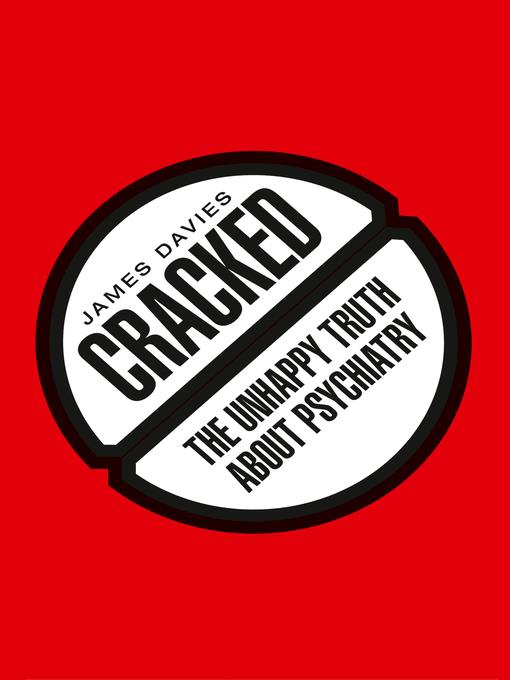
Cracked
The Unhappy Truth about Psychiatry
- اطلاعات
- نقد و بررسی
- دیدگاه کاربران
نقد و بررسی

May 27, 2013
A practicing psychological therapist adds to the fusillade against contemporary psychiatry with this multipronged attack. Relying on numerous studies and interviews with American and British leaders in the field—including Dr. Robert Spitzer, the primary editor of the DSM-III—Davies (The Importance of Suffering) lambasts the nonexistence of empirical biological evidence behind modern nosology, explaining that in lieu of hard data, “professional agreement, consensus, and, in the event of continued disagreement, majority opinion” ends up defining the disorders with which people are diagnosed and then for which they are medicated. On the pharmaceutical front, Davies takes aim at Big Pharma’s tendency to “cherry pick” positive clinical trial data to suit its needs. The results are drugs whose curative efficacy is questionable and which sometimes come with serious side effects (such as the “emotional blunting” that occurs in about half of all Prozac users). Further undermining the integrity of the psychiatric profession is the fact that many doctors, having received grants and/or speaking and consulting fees from Big Pharma companies, are essentially prescribing from within the deep pockets of their benefactors. The consequences for patients and the profession are obvious. An eye-opening and persuasive work. Agent: Andrew Lownie, Andrew Lownie Literary Agency (U.K.).

September 1, 2013
Davies (social anthropology & psychotherapy, Univ. of Roehampton; The Importance of Suffering: Emotions in the Field) seeks to dispel the popular misconception that by seeing a psychiatrist, one necessarily improves one's emotional and physical well-being. He chronicles numerous interviews he conducted with psychiatrists involved in revising the Diagnostic and Statistical Manual of Mental Disorders, who acknowledged the manual includes information not solidly grounded in science. Davies cites numerous studies in which participants taking prescribed medications showed little improvement compared with those who were given placebos. He also explains the reasons psychiatric drugs are more readily prescribed now than in previous years and offers suggestions for how the mental health profession must change if it is to regain patients' trust. VERDICT An eye-opening look into the world of psychiatry and its relationship with the pharmaceutical industry; recommended for all readers who want to learn about the mental health field as well as for students, scholars, and researchers studying medicine, psychiatry, psychology, anthropology, or sociology.--Tina Chan, SUNY Oswego
Copyright 2013 Library Journal, LLC Used with permission.

July 1, 2013
Expose of the practices of contemporary psychiatry and its uncomfortable, perhaps even dangerous, relationship with pharmaceutical companies who profit from an increasingly medicated public. This year, the latest version of the Diagnostic and Statistical Manual of Mental Disorders was released. The ensuing controversy over its contents begged the very question that spurred Davies, a practicing psychological therapist (The Importance of Suffering, 2012, etc.), to write this book: Why has psychiatry become the fastest-growing prescriber of drugs when neither the causes of mental illness nor the effects of these drugs is well understood? The author writes that 254 million prescriptions for antidepressants were dispensed in the U.S. in 2011, many of them to children. That these drugs are moneymakers for big pharma is not news, but when every diagnosis is justified by a "disorder" included in the DSM, how many of those 254 million prescriptions were medically sound based only on what the industry itself deems warranted? Davies points out that there is very little consensus among medical practicitoners on the diagnoses of depression, anxiety, ADHD and other common disorders, yet patients are medicalized for these issues at unprecedented rates. Additionally, the author argues that the psychiatrists who compose the DSM (many of whom have ties to drug companies) have the power to reclassify natural causes of mood change--for example, bereavement--as a disorder that qualifies for pharmaceutical treatment. Perhaps even more alarming, then, is the fact that pharmaceutical companies regularly publish only clinical trials that have positive results and spend twice as much money on advertising as on research. By controlling both the product's image and its distribution, big pharma has effectively succeeded in putting its financial interests above public health. Disturbing and uncompromising.
COPYRIGHT(2013) Kirkus Reviews, ALL RIGHTS RESERVED.

July 1, 2013
Davies, a social anthropologist and psychotherapist, takes on psychiatry and its bible, Diagnostic and Statistical Manual of Mental Disorders (DSM), in the wake of the release of that book's controversial fifth edition. Davies notes that psychiatry was once only for the most distressed members of society. No more. In 2011, Americans filled 254 million prescriptions for antidepressants, which, he writes, largely work because of the placebo effect, while some doctors who tout their benefits are consultants to drug companies. The number of mental disorders in the manual has increased from 106 in 1952 to 372 today, which has been referred to as diagnosis inflation. Davies' hypothesis is that psychiatry, by progressively lowering the bar for what counts as mental disorder, has recast many natural responses to the problems of living as mental disorders requiring psychiatric treatment. He is so outspoken about his negative feelings that at a university gala, a cardiologist asked him if he was a Scientologist. This thought-provoking book will make people think twice before sitting on a psychiatrist's couch or filling a prescription.(Reprinted with permission of Booklist, copyright 2013, American Library Association.)




دیدگاه کاربران